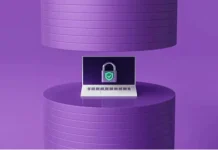As social media platforms become increasingly embedded in our lives, protecting personal information is more critical than ever. This is particularly true for Snapchat users, who frequently post private and individual events on the app. Recent Snapchat leaks have highlighted the need to safeguard information and privacy.
This blog post will give suggestions and insights for protecting your data and privacy on social media platforms, especially on Snapchat.
Key Takeaways
- Snapchat leaks expose private content, making personal data privacy critical for users.
- To protect against Snapchat leaks, regularly update the app and enable two-factor authentication.
- Users should avoid third-party apps, review privacy settings, and be cautious about sharing personal information.
- Parents can help their children stay safe on Snapchat by encouraging communication and setting guidelines.
- Understanding legal responsibilities helps users protect their data and take action in case of breaches.
Table of Contents
- The Importance of Data Privacy in Social Media
- Understand the nature of Snapchat leaks
- Why Does This Matter for Snapchat Users?
- Practical Tips to Protect Your Data and Privacy on Snapchat
- 1. Regularly update your Snapchat app.
- 2. Enable Two Factor Authentication (2FA).
- 3. Be cautious of third-party apps.
- 4. Review and adjust your privacy settings.
- 5. Avoid sharing personal information.
- 6. Learn about phishing scams.
- 7. Use strong and unique passwords.
- 8. Check Your Login Activity Regularly.
- The Role of Parents Against Snapchat Leaks
- The more significant issue of data security in social media
- Conclusion
The Importance of Data Privacy in Social Media
Data privacy is more than a slogan; it is a requirement. In today’s digital age, where personal information is freely accessible, data protection is critical. Snapchat and other social media platforms are popular targets for hackers because they host many personal photographs, videos, and messages. The latest Snapchat leaks have highlighted this issue, underlining the need for robust security measures.
Understand the nature of Snapchat leaks
One of the most notable Snapchat breaches happened a few years ago when about 200,000 photographs were available online. The disruption, dubbed “The Snappening,” uncovered flaws in Snapchat’s security framework. The leak was caused by a server misconfiguration, underscoring the significance of implementing robust security mechanisms.
Despite Snapchat’s guarantees that photographs and videos disappear after they are seen, the reality is very different. The photos are stored on servers, which can be accessed if compromised. Your “vanishing” photographs aren’t as fleeting as you might believe.
Why Does This Matter for Snapchat Users?
Snapchat users must recognize the risks involved with these disclosures. Whether you’re sharing casual snaps with pals or more sensitive stuff, such as leaked Snapchat nudes, the risk of your photographs being publicly revealed should not be underestimated. Awareness of these potential risks is the first step towards safeguarding your privacy on the network and preventing Snapchat Leaks.
Practical Tips to Protect Your Data and Privacy on Snapchat
You do not need to be a cybersecurity specialist to protect your data on Snapchat. Here are some practical methods to help you secure your information against Snapchat Leaks:
1. Regularly update your Snapchat app.
One of the simplest methods to protect your data is to keep your Snapchat app up to date. Updates frequently include security patches, which correct vulnerabilities and improve the app’s overall security. Make a habit of checking for updates regularly.
2. Enable Two Factor Authentication (2FA).
Adding a layer of security to your Snapchat account is critical. Enabling two-factor authentication ensures that even if someone obtains your password, they will still require a second verification form to access your account. If your password has been compromised, this can come in handy.
3. Be cautious of third-party apps.
Third-party apps that promise to improve your Snapchat experience can be attractive but frequently come with concerns. These apps may jeopardize your data and leave your account open to attack. To keep your data secure, use only the official Snapchat app.
4. Review and adjust your privacy settings.
Snapchat provides various privacy settings that allow you to manage who can view your content and contact you. Take the time to evaluate these settings and make any necessary adjustments. Limiting your snaps’ access can also help preserve your privacy against Snapchat Leaks.
5. Avoid sharing personal information.
While it may appear innocent to reveal your location or other personal information on Snapchat, this information can be exploited against you. Be cautious about what information you give and to whom. Always be cautious.
6. Learn about phishing scams.
Phishing schemes are a popular method for hackers to access your account. These frauds frequently take the shape of dubious links or messages claiming to be from friends. Be aware of strange messages and double-check any links before clicking on them.
7. Use strong and unique passwords.
A robust and unique password is your first line against illegal access and Snapchat Leaks. Avoid using readily guessable passwords and instead use a password manager to keep track of your credentials.
8. Check Your Login Activity Regularly.
Snapchat allows you to check your login history, making it simple to detect any fraudulent activity. Regularly monitoring this activity will enable you to detect suspicious logins and immediately suspicious logins and immediately act.

The Role of Parents Against Snapchat Leaks
Parents have an essential role in ensuring that their children use Snapchat securely without the risk of Snapchat Leaks. Here are some parenting tips:
- Open Communication: Encourage open discussion with your children about how they use social media. Discuss the value of data privacy and the risks of revealing personal information online.
- Set Boundaries: Establish clear Snapchat usage standards, such as who can be added as a buddy and what type of content is appropriate. Setting these boundaries can help your children make safer decisions.
- Monitor activity: While protecting your children’s privacy is crucial, occasionally monitoring their Snapchat activities can help ensure they use the platform responsibly. Using parental controls is one of the important safety measures against Snapchat Leaks.
The more significant issue of data security in social media
Snapchat, along with tools like Snaptroid, is among many social media platforms facing growing data security risks. Facebook, Instagram, and TikTok also hold vast amounts of personal information, which makes them attractive targets for cyberattacks. Having a broader understanding of digital security helps you make smarter choices about how you manage your online presence.
- The Evolving Landscape of Data Security: Cybersecurity experts underline that the world of data security is continuously changing. As technology progresses, new threats emerge, necessitating the updating of security measures on social media platforms.
- Legal implications and responsibilities: Social media platforms must protect user data by law. However, users have rights in the event of a data breach. Understanding your rights allows you to take action if your data is hacked.
- Case studies and real-world examples: Real-life examples of persons impacted by data breaches can serve as solid reminders of the necessity of data protection. For example, the Breckie Hill Snapchat breach received a lot of attention, highlighting the risks of sharing sexual content. These case studies show the importance of protecting your information, particularly against leaked Snapchat nudes or naked Snapchat.
Conclusion
To summarize, the latest Snapchat breaches are a sharp reminder of the value of data privacy. Services like Fast Background Check show just how easily personal details can surface online, so taking proactive steps is essential. By staying alert, you can protect your information and keep your Snapchat experience more secure in today’s digital world.
Consider the following cybersecurity blogs to stay current on the newest trends and gain further insights and expert advice on data security. Your data is valuable; protect it wisely.
FAQs
Snapchat leaks refer to unauthorized access and distribution of users’ private images, videos, or messages on the platform. They are a concern because they can expose sensitive content, leading to privacy violations and potential harm to users.
To protect your Snapchat account, regularly update the app, enable two-factor authentication, be cautious with third-party apps, review privacy settings, and avoid sharing personal information.
If you suspect your Snapchat account has been compromised, immediately change your password, enable two-factor authentication, and check your login activity for any unauthorized access. If necessary, contact Snapchat support for assistance.
Parents can help by encouraging open communication about social media use, setting clear guidelines for who their children can add as friends, and monitoring activity as needed to ensure safety.
Social media platforms are legally responsible for protecting user data from breaches. Users also have rights regarding their data; understanding these rights can empower them to act if their information is compromised.











